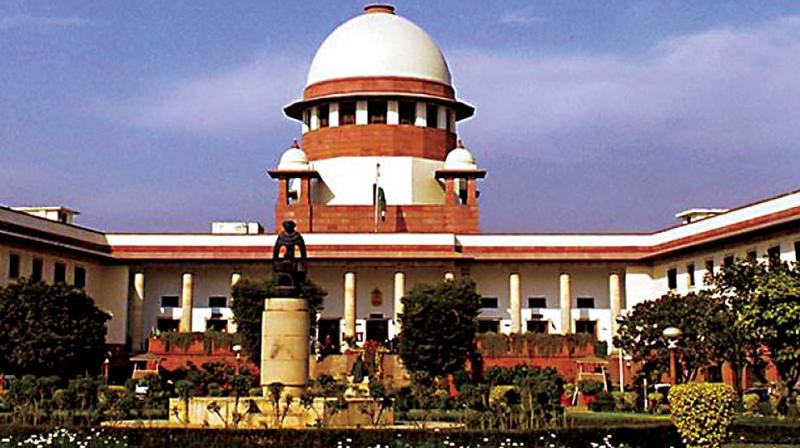SC landmark judgements hit on-ground roadblocks
Former cops say governments lack force and will to execute verdicts.

Hyderabad: From striking down Section 57 of the Aadhaar Act to lifting the ban on the entry of women in the 10-50 years age group to the Sabarimala temple, the Supreme Court has delivered several landmark judgements that have brought about changes in our lives.
But some of the directions have gone up in smoke as government agencies found it difficult to execute them on the ground. As such even a day before Diwali, the Telangana police did not have a plan to tackle possible violations of the timing restriction on firing crackers.
It turned out to be exactly as feared. On Diwali, crackers were burst right from dawn till past midnight.
A senior police officer said, “Certain judgements need acceptance. As many practices are decades old, it requires some time for alterations. Regarding the Diwali judgement, time was insufficient to deploy extra forces.”
“The focus was to prevent cracker-related mishaps and keeping guard at highly sensitive areas like fuel depots. Also, the matter involved the sentiments of the people and it is difficult to convince them in a short span of time. Using forces to deter the public on a festival day may also lead to a tense situation. Constant persuasion in the future is likely to yield results in implementing such orders,” the police officer added.
However, a few experts see the directions in sharp contrast with the ground reality. “The order on cracker ban cannot be implemented. It shows that the order has no sync with the grassroot reality because the truth is that nobody cared about following the SC order,” said former director-general of police Swaranjit Sen
“The legislature should be equipped and prepared to implement such orders. In the case of Sabarimala, there are two issues to be addressed. The court streamlined equality in its wisdom. But the sentiments of the devotees are involved, which is hindering the state from executing the order,” Mr Sen said.
During the tenure of retired IAS officer V. Balasubramaniam, the High Court while hearing a PIL on pollution in the Hussainsagar had directed the state government to ensure that no idol was immersed in the lake.
“The public did not cooperate, thus the direction had to be modified, and the court then asked the state agencies to remove idols within 24 hours of immersion. The orders need public acceptance to be implemented and are a success when it is duly followed,” an officer said.
Many of the SC directions are deemed judicial activism. In recent times, the apex court has been issuing directors on matters such as preventing industrial pollution at teh Taj Mahal and controlling pollution in the Ganga.
“Not complying with orders issued in good intention cost us our lives. The SC is interpreting our constitutional right that is the right to live with dignity, in an environment free from pollution. But it requires the people to help the government to implement the order,” said Prof. C. Srinivasulu, an environmentalist.
A few years ago, the government after it was pulled up by the Supreme Court, banned single-use plastic but it turned out to be ineffective till date though state governments are working towards end plastic pollution.

